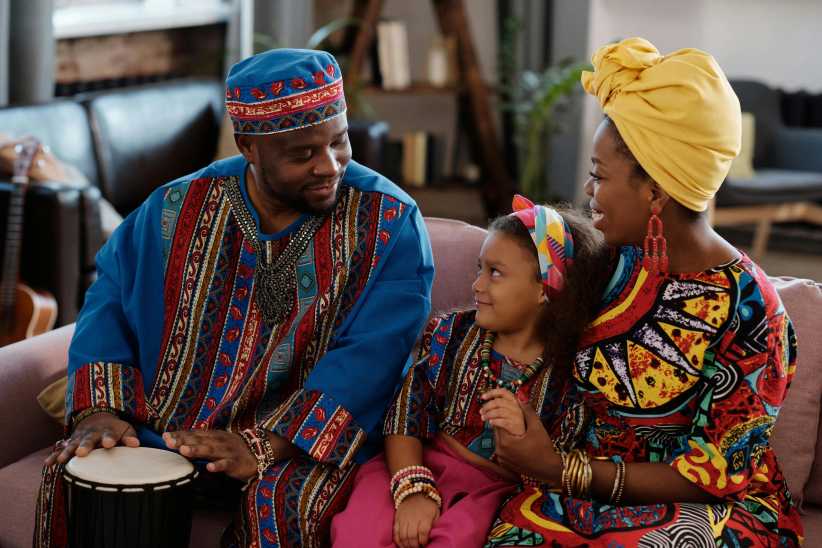Editor’s Note: Sally Tannen, Director of 92Y’s Parenting Center and new Grandparents Center, is back with more expert advice. She’s starting off the new year with a focus on wellness and healthy habits. Here are a few of the questions Sally is asked again and again at the Parenting Center. –Mia Weber, Executive Editor, New York Family
ASK SALLY: A focus on wellness to start a new year!
Q: My wife and I each grew up having dinner as a family every night (or at least most nights). But pulling that off as modern parents with two demanding jobs, a school age kid with lots of activities and a preschooler feels impossible. Is it bad to be more freestyle, so long as everyone is eating something healthy?
A: There’s a reason the words “family meal” have a kind of halo around them. The ritual of sitting down to dinner together – eating the same thing at the same time, free from distractions – is among the most important things you can do with and for your children. Mealtime offers the opportunity to connect and share in a way that makes a profound impact. Catching up on everyone’s day around the table, laughing, unwinding and sharing stories seems so basic, but it helps cement who you are as a family, and imparts deep-routed messages to your kids. Studies have shown that the benefits of regular family meals for children include improved academic performance, higher self-esteem, lower risk of substance abuse, depression and more. A family meal nightly may not be a realistic goal in your home—it isn’t in many. The important thing is to make it a priority. Even if it’s only Sunday nights that you can gather together in this way, do it, and do it regularly. And while, of course, you should strive for meals that are healthful, even “Friday night pizza night” counts as a family meal, so long as everyone sits and eats together, and when you make it a ritual your kids can count on.
[gravityform id=”13″ title=”false” description=”false” ajax=”true”]
The takeaway: While family dinner every night may not be a realistic goal, make it a priority to share family meals as often and as regularly as you can.
Q: I can’t get my toddler to eat anything approaching a real meal. Any advice?
A: Toddlers are famously picky eaters, but they’ll eat if they’re hungry. Something I observe every day at the Parenting Center is kids over-snacking. Children arrive for classes after they’ve had breakfast, they get a little healthy snack during class (generally something they’ve helped prepare), then at pick-up time, I often see parents or caregivers handing over containers of Goldfish! Today’s children are snacking too much and on too many of the wrong things, so naturally they’re not very interested in “real food” come mealtime. Regarding those meals, involving kids in the preparation dramatically increases their interest in eating the results. Even a toddler can tear leafy greens and whirl them around in a salad spinner, or stir ingredients or cut soft foods with a plastic knife. Also, kids like what is familiar to them, so try to have at least one thing on your child’s plate that you know she likes, and don’t stress about the rest. Continue to offer healthful options, but don’t make food an issue. There are very few things small children can control in their lives, but what they put in their mouths is one of them. If you let food become an issue, the issue becomes one of control, not food. And as in all things, modeling healthy habits is the best way to instill healthy habits in your child.
The takeaways: Limit snacking, involve kids in meal prep, pair the familiar with the new, don’t make food an issue.
Q: Our 4-year-old daughter goes to pre-K, and takes ballet, gymnastics and swim classes after school and on weekends. My husband would like to start her in soccer, since so many other kids her age are already playing. She’s a happy kid, and likes going to each of her activities, but I’m concerned about her being overscheduled. Should we continue to fuel her multiple interests, or how do we know if she is taking on too much?
A: It’s wonderful that you’ve got a child who likes a variety of activities, is learning skills, and has the energy to support it all. As director of 92Y’s Parenting Center I am a great believer in classes and enrichment activities that nourish a child’s development. But young children also need down time. Children need unstructured time to decompress, to daydream, even to be bored. Young children who were only recently still napping shouldn’t be “on the go” all the time. What they need is some quiet time, in your company, every day. Stop and read a story together – not only at bedtime. Sit with them while they play with a favorite toy, and without asking questions or prompting anything. Just be with them, listen to them, be phone-free, and give 100 percent of your attention to that time. It will have a lasting impact. Lastly, a thought regarding the words, “her multiple interests.” It sounds like the soccer idea came from your husband, not your daughter. There is so much out there for kids to become involved in, especially in NYC. Parents often think that introducing their children to a full buffet of opportunities is what is best for them. But just because other kids are playing soccer doesn’t mean your daughter must. Support the things that interest her, not what you think they should be.
The takeaway: Young children need down time as much as they need stimulation. It’s a balancing act, and parents need to be the balancers. And encourage your child to discover her own interests, even if they aren’t the ones you’ve imagined.
Q: I want to raise a fit and healthy child. I’ve been critical of my sisters in the suburbs, whose kids are seemingly always in the backseat of a car, yet I’ve still got my preschooler in a stroller. It’s hard racing around the city with a small child! Any suggestions?
A: It is hard to get around with a small child on his own two small feet, but it’s important that you do. Most basically, kids need exercise, and once they are past toddling they should be encouraged to walk in the world, not just at home. Yes, it will slow you down. Yes, it will compromise your errands and how much you can carry. But beyond the element of exercise, it will encourage your child to be an active rather than passive participant in the outside world. A walking child is a more alert child. A walking child is a more engaged child. A walking child is more likely to interact with shopkeepers, neighbors, dog walkers and the wider world, fueling his emotional growth as much it works those little legs.
The takeaway: Want to raise a fit and healthy child? Take the steps to do so—and help him take his.
Director of 92Y’s Parenting Center and new Grandparents Center, Sally Tannen has been supporting early childhood parents, building community, and creating and offering activities and classes for babies, kids, parents and grandparents for thousands of NYC families for more than 25 years. A mother of four and grandmother of three, Sally’s personal experience continues to enrich and inform her work. To learn more about the 92Y, visit 92y.org!













